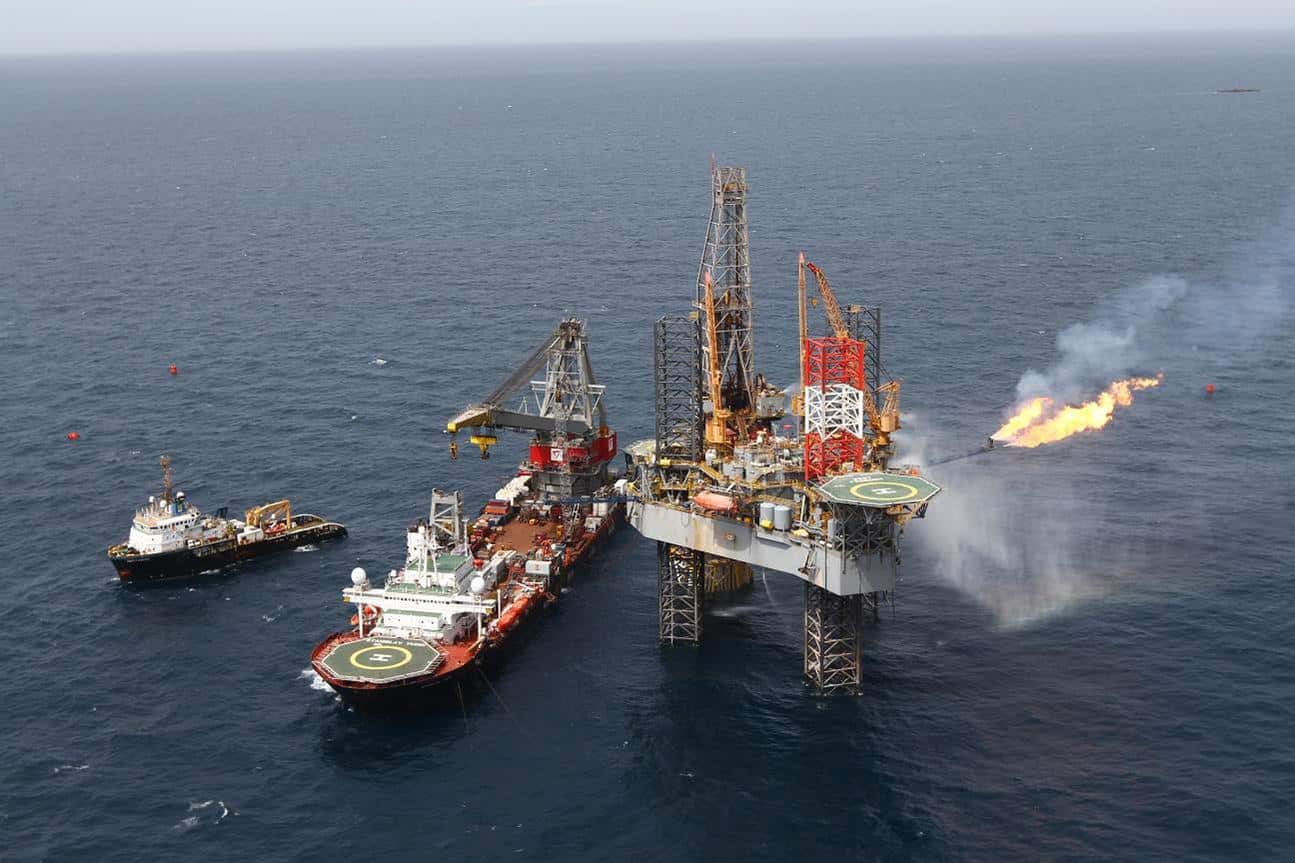
Offshore gas platform with a tanker docked on it. Photo: BNamericas/file photo.

Orinoco Tribune – News and opinion pieces about Venezuela and beyond
From Venezuela and made by Venezuelan Chavistas

Offshore gas platform with a tanker docked on it. Photo: BNamericas/file photo.
Caracas, January 25, 2023 (OrinocoTribune.com)—This Tuesday, January 24, the US Treasury Department, via the Office of Foreign Assets Control (OFAC) granted a “license” to Trinidad and Tobago to “develop a major gas field located in Venezuelan territorial waters,” Reuters reported, citing a senior Joe Biden administration official on condition of anonymity.
According to the Global North information service, the license was issued following a request made by the Trinidadian government. It will allow the island nation to resume business in the Dragón gas field with Venezuelan state-run oil company PDVSA.
“This decision is the result of extensive diplomacy between Vice President Kamala Harris and Caribbean leaders, who have made it clear that granting this specific license would help ensure their energy security and decrease the region’s reliance on energy resources from other countries, including Russia,” the official said, failing to mention that, in reality, this is a much needed White House strategy to fix the consequence of its derailed and not very effective battery of sanctions against Russia.
PDVSA and Chevron Sign Contracts for Oil Production in Venezuela
“PDVSA has found reserves of 4.2 trillion cubic feet (TCF) in the Dragón field, on the Venezuelan side of its maritime border with Trinidad,” Reuters stated. “The project was headed for production over a decade ago, but stalled over lack of capital and partners, as well as sanctions.”
Despite this new imperial authorization, euphemistically termed as a “license,” the source cited by Reuters assured that “the United States policy towards Venezuela has not changed,” and that “the sanctions and restrictions that are still in force will continue to be applied.”
However, the news outlet pointed out that said license marks a new sign of the relaxation of some unilateral coercive measures imposed by the US administration on the South American nation. Reuters further recalled that as a result of the resumption of dialogue between the Venezuelan government and the opposition, the US announced authorization of the oil company Chevron to resume operations in Venezuela on November 26 of last year.
Washington Greenlights Chevron to Resume Oil Production in Venezuela, Uses Mexico Talks as Excuse
Trinidadian response
The government of Trinidad and Tobago welcomed the decision, announced by Prime Minister Keith Rowley during a press conference this Wednesday, reported the Caribbean National Weekly. “The United States government has today approved Trinidad and Tobago’s development of the Dragón gas field via an OFAC waiver from sanctions, with specific terms to be finalized,” stated the Trinidadian head of government.
The local news outlet informed that Rowley described the announcement by Washington as “a happy and significant day” for Trinidad and Tobago, as well as for the wider Caribbean Forum region, that includes the Dominican Republic.
Rowley added that while there is “still a lot more work to be done, this is a giant step forward,” acknowledging the role played by US Congresswoman, Maxine Waters, “who we in CARICOM regard as our…representative from the Caribbean” and other US legislators from “both sides of the aisle.”
Venezuela Will Control Expenditure of Unfrozen Funds, Says Jorge Rodríguez (Mexico Talks)
Contradictions
The US license, as reported by Reuters, means Trinidad and Tobago will be allowed to resume doing business with the heavily sanctioned Venezuelan state-run oil company PDVSA, even though the Venezuelan government will not be permitted to receive any cash payments from this project.
The wording of this license replicates other OFAC licenses, which does not make too much sense to the eye of many experts who can not understand how PDVSA and Venezuela would advance in negotiations with Trinidad or Chevron without a financial return. Many analysts believe that this wording is simply to minimize the fact that Venezuela is in front of sanction relief measures; others say that while there are no cash payments allowed, swap operations and debt payments may be permitted for PDVSA.
Venezuelan authorities have not commented on this new development so far. However, the government of President Maduro has criticized in recent weeks the lack of follow-up from the Venezuelan opposition and the US government as they have yet to unfreeze $3 billion—as was agreed almost two months ago, during the last round of the Mexico Talks—that would solve severe financial difficulties in Caracas in regards to healthcare, housing, and electricity projects.
Orinoco Tribune Special by staff
OT/JRE/AU